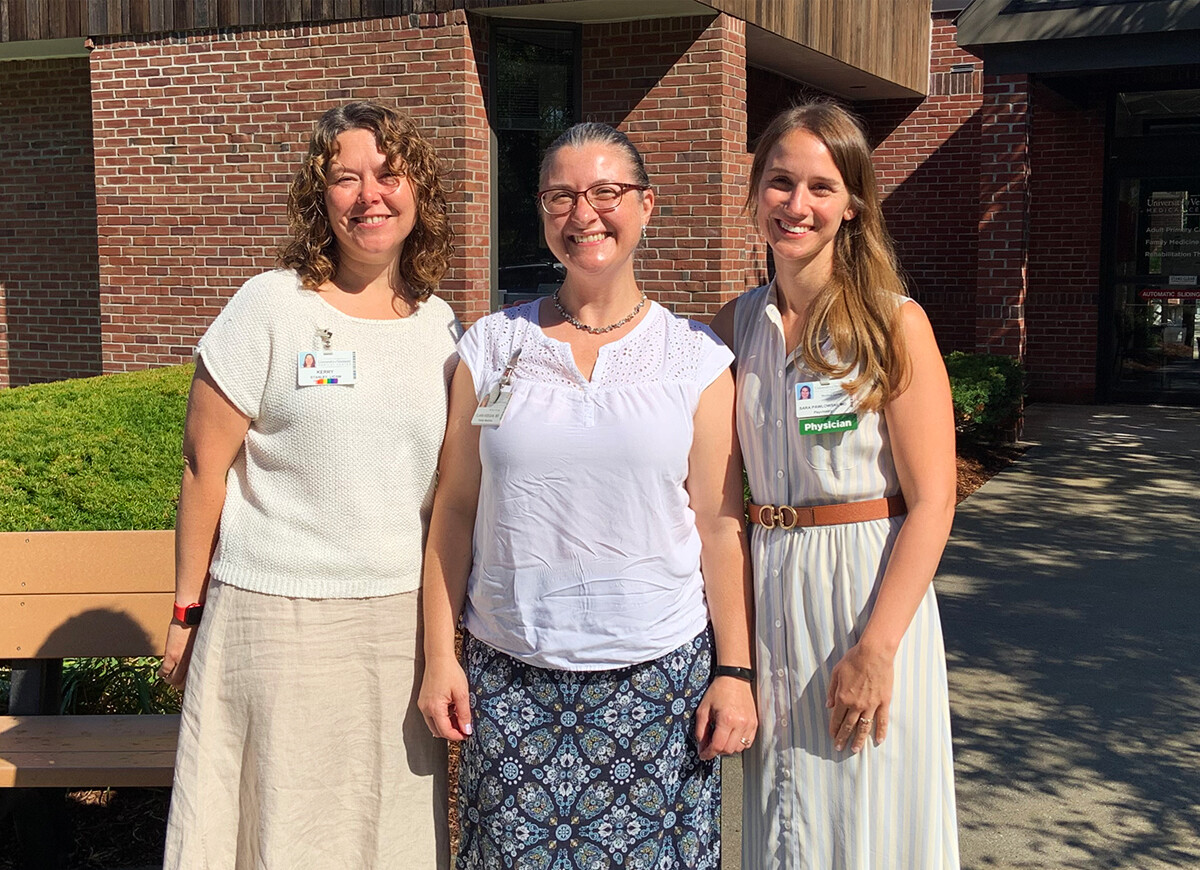Mental Health Care is Health Care

In 2020, even before COVID-19 increased many people’s anxiety and depression, nearly one third of University of Vermont Medical Center primary care patients reported mental health or substance use concerns.
“We knew a mental health crisis was coming before the pandemic – there are never enough mental health professionals to manage the need, resulting in long waiting lists,” says Robert Althoff, MD, PhD, Chair of Psychiatry for UVM Health Network and Associate Professor and Chair, Department of Psychiatry for UVM’s Larner College of Medicine.
It used to be that you would call your primary care provider for your physical health needs and a mental health provider to manage things like anxiety and depression. UVM Health Network is working to change that approach with the implementation of an evidence-based collaborative care model.
The idea is this: Psychiatrists, psychologists and behavioral health care managers will now partner directly with primary care physicians within the same medical practice to provide timely, appropriate mental health services for patients. Not only does this one-stop shop approach make it more convenient for the patient and remove a potential barrier – the need to call to make a mental-health appointment – which some patients find daunting – it helps eliminate any stigma associated with seeking help.
Seamless Integration
Mental health screenings are fairly routine at annual wellness visits now, with patients asked to answer questions about their general state of mind, whether they feel emotionally supported by friends and family or if they engage in activities that bring them joy.
These screenings help identify patients who might need behavioral health support. Then it becomes a team effort to develop a plan that works for that patient, whether that means starting medication or connecting with a behavioral health care manager.
“I review patients’ charts to clarify diagnoses and recommend treatment plans, often starting with medication that can be prescribed and assessed by the primary care provider,” says Sara Pawlowski, MD, a psychiatrist with UVM Health Network and Assistant Professor and Division Chief of Primary Care Mental Health Integration at UVM’s Larner College of Medicine. “This helps a patient sooner because they don’t need to wait for an appointment with a mental health provider to start their treatment.”
“I work to understand each patient’s situation and needs to find the most appropriate intervention,” says Kerry Stanley, LICSW, a behavioral health care manager with UVM Medical Center. “Many patients managing chronic illness are at risk for depression and withdraw from social interaction or activities that bring them joy. I help them understand the cycle of depression and find ways to reduce barriers to doing more of the things they used to care about.”
Behavioral health care managers can also recognize when patients aren’t taking medications as prescribed or recognize when medications aren’t working as expected.
“A big reason patients don’t take their medication is because of side effects, so I work with the patient and their primary care provider on a plan that works for them,” says Stanley. “For example, if a medication makes a patient sleepy, the patient may be able to switch to taking it at night.”
The Future of Primary Care
“This model entails more than simply co-locating primary and mental health services in one location,” says Maureen Leahy, director of neurology and psychiatry for the UVMHN Medical Group.
By working with those who specialize in mental health, primary care providers gain valuable knowledge to better help all of their patients with mental health concerns, especially those concerns that are increasingly common.
“We focus quite a bit on anxiety and depression because they are widespread complaints and we know they can get in the way of other health care treatments,” says Dr. Althoff.
“With the support of Dr. Pawlowski [the physician leader of the new project], I keep learning what’s working, so I can manage more of my patients’ mental health concerns on my own,” says Clara Keegan, MD, a primary care physician with UVM Medical Center Family Medicine in South Burlington and Associate Professor, Department of Family Medicine at UVM’s Larner College of Medicine.
Collaborative Care Everywhere
The model is now in place at four Burlington-area primary care clinics – with three more being added this summer – and four Middlebury-area clinics.
The biggest obstacle to bringing the model to more UVM Health Network primary care clinics across Vermont and northern New York is workforce shortages.
“Finding and keeping behavioral health care managers has been hard. We’re also trying to add psychologists to the program, but hiring has been a challenge,” says Dr. Keegan.
Of course, not every mental health concern can be fully addressed by this model of collaborative care. For patients with more serious mental health concerns, “this model can offer patients a bridge to more acute or inpatient care. We can help them stabilize until that care is available, which can take months,” says Stanley.
By partnering with primary care providers to deliver the more routine mental health care, psychiatrists have time to see more of those patients with greater needs.
“It’s a different way of being a mental health provider,” says Dr. Pawlowski. “It’s a smart and creative way to use a scarce resource, allowing us to bring care to more people across our region.”
